New music — and beyond
New Music Festival includes U of M musicians and scholars on theme "Beyond"
Playing off music icon Frank Zappa’s declaration that “Information is not knowledge, knowledge is not wisdom, wisdom is not truth, truth is not beauty, beauty is not love, love is not music. Music is the best,” this year’s WSO New Music Festival explores the theme “Beyond” through unusual music, art and scholarship. The 23rd annual festival showcases its final events on Jan. 30.
The world renowned Winnipeg festival regularly features Desautels Faculty of Music musicians — students, faculty and alumni — and this year is no different. The University Singers performed some of the music, as did the university’s string, flute and wind ensembles. Last night, music composition student Zack Bales performed along with U of M music alumnus Sarah Kirsch. Tonight the XIE, the eXperimental Improv Ensemble directed by Gordon Fitzell, performs as part of the pre-concert at 7:15.
In addition to including several university musicians, this year it’s added additional events to explore the theme.
One such event is a panel that will precede the evening of music on Friday evening. Both of the musical pieces imagine other dimensions: Four Seasons Recomposed by Max Richter rewrites the past by reworking Vivaldi’s iconic work The Four Seasons; Valentin Silvestrov’s Requiem for Larissa, written in memory of his late wife, imagines the afterlife.
The panel, which takes place at 6:00 p.m. at part of the pre-concert, takes as its topic a “wide range of the ‘beyond’ from pure science to belief.” It features Shelley Sweeney, head, U of M Archives & Special Collections, associate professor of physics and astronomy Jayanne English and writer, alumnus and ufologist Chris Rutkowski.
The panel takes as its topic a “wide range of the ‘beyond’ from pure science to belief.”
Sweeney, who oversees the Hamilton Family fonds, will speak on the topic of séances. The fonds are known worldwide for its historical overview of this fascinating time in Winnipeg’s history. Just after the turn of the century, visitors as diverse as Sir Arthur Conan Doyle saw Winnipeg as something of an epicentre of psychic possibility. After his visit with the Hamiltons in 1921, he wrote, “I came away with the conclusion that Winnipeg stands very high among the places we have visited for its psychic possibilities.”
Winnipeg physician T. G. Hamilton and his wife Lillian began their secret investigations into the paranormal with séances and mediums after the death of their three-year-old son in 1918.
Sweeney will discuss how the Hamiltons’ spirit photographs can be viewed as tangible representations of the afterlife. “And if you don’t belong to the camp that believes that there is an afterlife, then you can consider that spirit photographs are tangible representations of how individuals deal with their grief through a yearning for proof that people as we know them do not disappear forever but have a life beyond this one,” she adds.
U of M astronomer Jayanne English’s research focuses on the evolution of galaxies and she is also known for creating striking Hubble Space Telescope images. She will speak on “the non-intuitive concept that the universe is not embedded in anything and began in state in which there was no ‘beyond.'” She explains, “Almost 14 billion years ago the dimensions of time and space were infinitely folded into a point. Points have no dimension so time did not exist. Since there was no past for this state, the universe’s unfolding is where ‘beyond’ begins.”
Science writer, educator and ufologist Chris Rutkowski, an alumnus employed at the university as a media communications officer, will speak on how the term “paranormal” itself means “beyond normal experience.” With a background in astronomy, he’s been studying reports of UFOs and writing about his investigations and research and has published eight books including The Big Book of UFOs (2010). Rutkowski believes that we are now in the “Steven Spielberg Generation — able to visually interpret the universe in a different way, imagining fantastical things in ways not technically possible by previous generations.”
And now … the music of Beyond
Last night, U of M music student Zach Bales performed a haunting number with Desautels Faculty of Music alumna and vocalist Sarah Kirsch. The fourth year composition student played laptop for Concubia Nocte, a piece composed for soprano and live electronics. Bales enjoys composing with electronic instruments for the “freedom it gives me in the music, to explore more timbres than what traditional instruments might have.” Composing with electronics has changed his understanding of time in music, he says. In addition to performing, he also composes music for instrument (including electronics) and voice.
Concubia Nocte, the piece he played last night, was originally going to be performed by his teacher, U of M music composition professor Örjan Sandred (see Faculty Profile story here), who had to fly out of town.
The dramatic composition by Italian composer Jacopo Baboni-Schilingi was performed in Winnipeg three years ago, notes Bales. He explains that the music is “this big sound world that goes through different moods, though different singing techniques, from whispering to spoken word, and sound — these moments of subdued sustained sound and then moments of big sound and strong, rhythmic drive. And parts that have no electronic accompaniment, just [the vocalist] singing through long lines of text.”
The text, which is in Latin, is based on the Book of Ecclesiastes. Nocte concubia translates to “in the time of first sleep” or “in the dead of the night”; Baboni-Schilingi composed the piece in memory of his friend, the composer Luciano Berio.
A colourful performance
Bales also plays (electric bass) with the XIE, U of M’s eXperimental Improv Ensemble directed by associate professor in the Faculty of Music, Gordon Fitzell. (Read more about the XIE in this UM Today story.)
They will play using a light conduction system — a software/hardware system designed by Fitzell’s collaborator Stefan Smulovitz, a composer and violist from Vancouver — that allows a conductor a unique communication and control with the musicians.
It works like this. Each musician has a light in front of them, which flashes or sustains different colours that have been awarded predetermined meanings. For instance, says Bales, one colour could mean to play with texture, while another could indicate to create some kind of a music loop. Yet another could direct the performer to imitate someone else while evolving the musical idea. While the light is on, the musician plays. This and the colour of the light provide the musician with some direction.
So, in spite of the the music being improvised, it gives the conductor some control through the lights, says Bales.
It alters the idea of musical improvisation, as well as conducting. “As a performer, you may have ideas about where you want the music to go,” says Bales, “and then you have to fit in where you’re going with what the conductor is telling you to play, even though it’s improvised.” He adds that beyond the colours, there aren’t any parameters.
The XIE, which plays in terms of sound and open form rather than with traditional musical measures, phrases, keys or melodies, has been working with the system for a while now. Fitzell notes that it has been especially useful because it allows for a great deal of freedom while giving a collective unity and focus, along with some structure.
Fitzell adds that tonight the performers will be spatially separated from the conductor and from each other. Working as the conductor (or “mad evil genius,” Fitzell laughs), he will feed different colours of light into the interface throughout the performance.
XIE performs at the pre-concert at 7:15 on Jan. 31; the “Beyond” panel starts at 6:00 p.m.







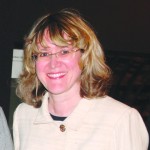
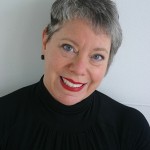
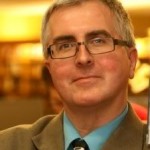

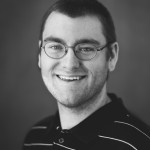
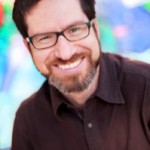
Pingback: New music — and beyond and … UFOs in Manitoba Canada | National UFO Community
Pingback: New music — and beyond and … UFOs in Manitoba Canada « The Elfis Network